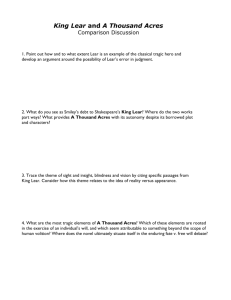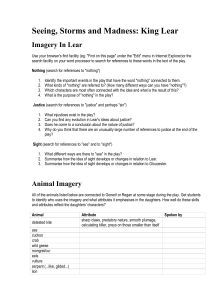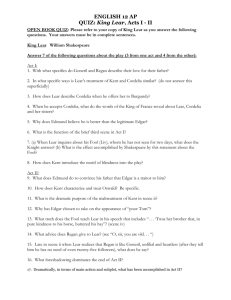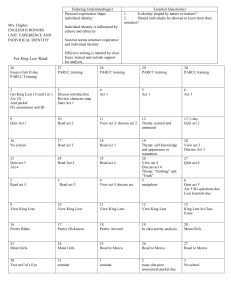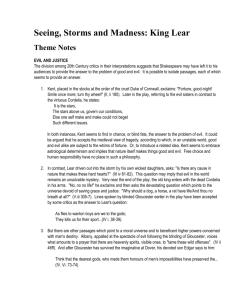scored panel discussion on Lear
advertisement
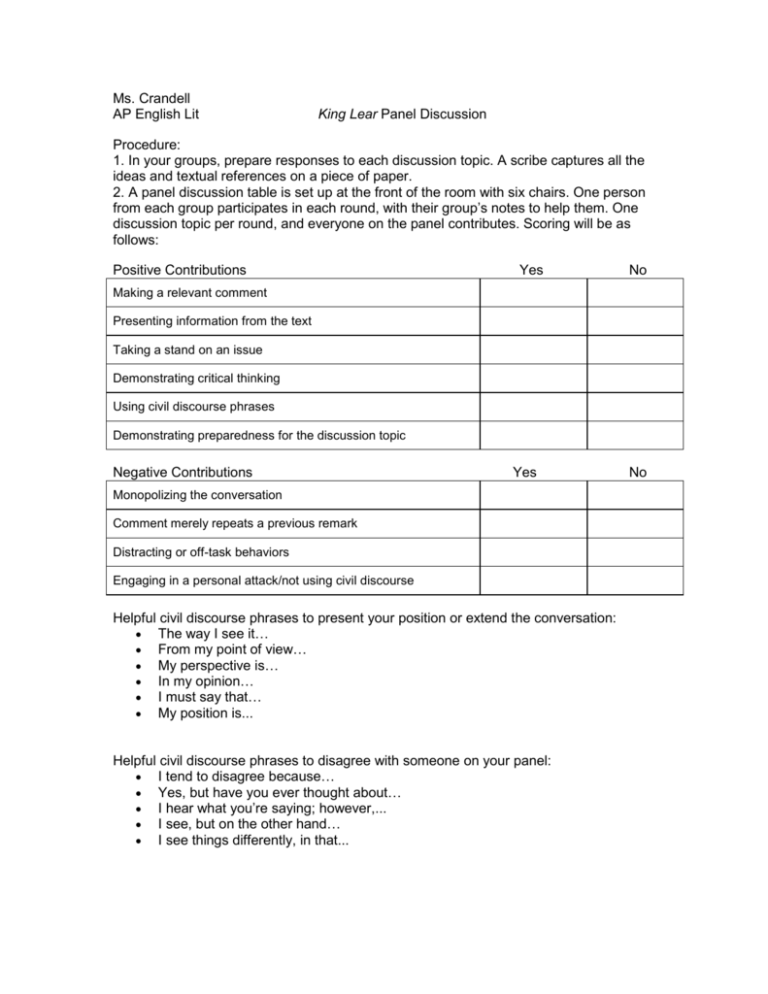
Ms. Crandell AP English Lit King Lear Panel Discussion Procedure: 1. In your groups, prepare responses to each discussion topic. A scribe captures all the ideas and textual references on a piece of paper. 2. A panel discussion table is set up at the front of the room with six chairs. One person from each group participates in each round, with their group’s notes to help them. One discussion topic per round, and everyone on the panel contributes. Scoring will be as follows: Positive Contributions Yes No Making a relevant comment Presenting information from the text Taking a stand on an issue Demonstrating critical thinking Using civil discourse phrases Demonstrating preparedness for the discussion topic Negative Contributions Yes Monopolizing the conversation Comment merely repeats a previous remark Distracting or off-task behaviors Engaging in a personal attack/not using civil discourse Helpful civil discourse phrases to present your position or extend the conversation: The way I see it… From my point of view… My perspective is… In my opinion… I must say that… My position is... Helpful civil discourse phrases to disagree with someone on your panel: I tend to disagree because… Yes, but have you ever thought about… I hear what you’re saying; however,... I see, but on the other hand… I see things differently, in that... No King Lear Discussion Topics: 1. Nobility and Humanity. In the beginning of the play Lear is very much a king. During the storm sequence he speaks of being stripped down to the essence of humanity, to “unaccommodated man [which is] no more but such a poor, bare, forked animal” (3.4.112114). Is this a realistic view of humanity? A very depressing one? In what way is it useful? In modern times, we have moved away from recognizing nobility as a feature of high birth, and now recognize it as a feature of character. What is true nobility? 2. Bonds of anguish, bonds of love. Cordelia says she loves her father “according to her bond” (1.1.90). Look up the word ‘bond’ and find any definitions or examples of usage that you think help to interpret Cordelia’s line. (http://www.thefreedictionary.com/bond has 15 different definitions.) Lear talks a lot about how his daughters are ungrateful. What should children feel grateful to their parents for? What is the human capacity for love: do we have limits or is it unlimited? 3. Words. Consider Edgar’s final words, which close the play: The weight of this sad time we must obey, / Speak what we feel, not what we ought to say. / The oldest hath borne most; we that are young / Shall never see so much nor live so long. To what extent is it possible to heed Edgar’s advice to “speak what you feel” in any circumstance? Would that be helpful, right, or good? The beginning of the play centers around Lear’s division of his kingdom through a game of words. His older daughters speak very well, while his youngest child refuses to participate. Later both Edgar and Lear speak nonsense. Lear asks, “Who is it that can tell me who I am?” One can interpret the question as a problem of being able to put a complicated human identity into words. What value can be placed on words? What truth is in them at all? 4. Philosophy. Critics have summed up the message of King Lear thus: in a godless universe, our only hope is to be kind to one another. Do you agree that this is Shakespeare’s vision? How is the repeated word “nothing” related to this idea? In our modern world, what should be our guiding hope or moral code? We find another aspect of existentialism in the play: Self-deception is key to the tragedy of Lear. Is self-deception an unavoidable component of being human?


